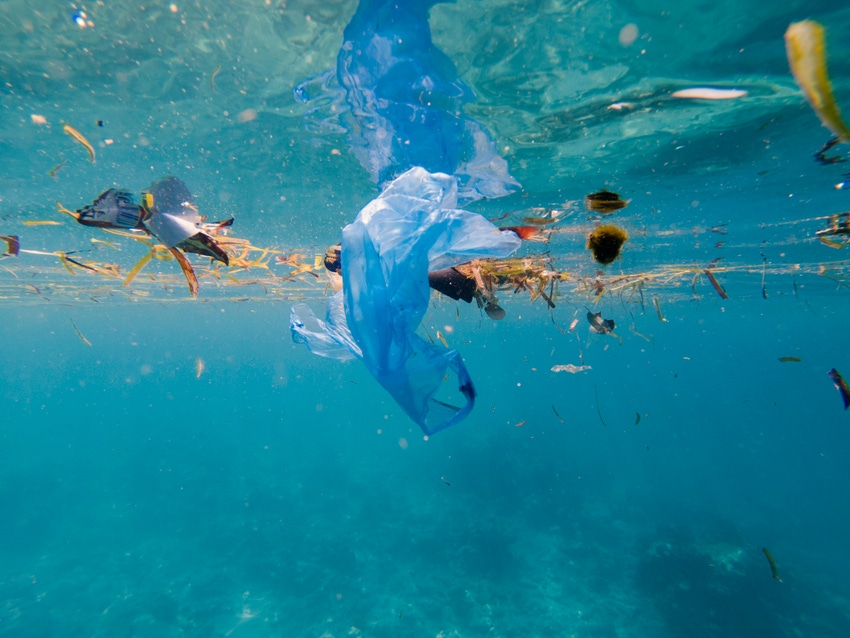Circulate Capital Publishes Guide to Help Solve SSEA Ocean Plastic Crisis
The newly published handbook lays out investment opportunities in SSEA’s municipal waste management and recycling infrastructure sectors.

Circulate Capital, the investment management firm dedicated to incubating and financing companies and infrastructure that prevent ocean plastic in South and Southeast Asia (SSEA), today released “Investing to Reduce Plastic Pollution in South and Southeast Asia: A Handbook for Action,” a guide aimed at catalyzing investment around immediate solutions to SSEA’s ocean plastic crisis. Circulate Capital made the announcement at The Economist World Ocean Summit in Abu Dhabi, United Arab Emirates, in partnership with Ocean Conservancy.
Culminating more than a year of research and building on Ocean Conservancy’s seminal “Stemming the Tide” report, the handbook is a first-of-its-kind guide to investment opportunities in SSEA’s municipal waste management and recycling infrastructure sectors, the two sectors in the region identified by Circulate Capital and Ocean Conservancy as having the most solutions ready to scale. It lays out a variety of factors impacting the entire plastics value chain to help investors evaluate opportunities and deploy assets in the region.
The handbook also provides insight for the many other actors who will play critical roles in scaling these sectors and developing a circular economy in South and Southeast Asia—including governments, nongovernmental organizations, entrepreneurs and academic institutions.
“We’ve spent enough time pointing at the problem, now we have to focus on the solution. The time to act is now,” said Rob Kaplan, founder and CEO of Circulate Capital, in a statement. “We recognized we had to refocus the conversation on investible solutions that are ready for deployment today. Our goal with this handbook is to provide institutional investors with the knowledge and insights they need to catalyze investment and action in waste management and recycling infrastructure in South and Southeast Asia.”
The following are some of the key findings from the handbook:
Leveraging support from national governments and establishing an appropriate policy-enabling environment while working at a very local level with cities and municipalities are both critical to success.
There are larger investment opportunities downstream (processing and reuse) in the plastic value chain, with smaller, early-stage opportunities upstream (collection and sorting).
There is a need for systematic investment within a specific waste shed as well as discrete investment approaches along the plastic value chain.
Implementation challenges remain despite comprehensive national solid waste management legislation in several countries.
“There are no silver bullets to solving the ocean plastic crisis, which is why Circulate Capital takes a novel and comprehensive approach to addressing these issues,” added Kaplan. “The handbook is another important contribution we are making to the ecosystem of actors who are working to end ocean plastic pollution. Building on the important work begun by Ocean Conservancy nearly four years ago, the handbook is open sourced, so we can share all our knowledge with all participants along the plastics value chain. Working together, we can solve this problem.”
In October 2018, Circulate Capital announced that it expects to receive around $100 million in funding for its investment strategy to combat ocean plastic from several of the world’s leading consumer packaged goods and chemical companies. With funding and collaboration from public and private sources, the firm aims to remove capital barriers to the development of waste management and recycling infrastructure and to support innovative solutions to ocean plastic issues. In parallel, The Incubator Network by Circulate Capital and SecondMuse, which receives philanthropic funding and strategic support, seeks to accelerate solutions to ocean plastic waste by partnering with existing incubators to build ecosystems of waste management and recycling innovators in SSEA.
“It’s incredible to think that just a few years ago, ocean health and waste management were hardly ever in the same sentence. Now, thanks to scientific research and a lot of ambitious, yet pragmatic thinking, we know that investing in waste management—making sure that every piece of discarded plastic is collected and, ideally, reused—is the key to solving the ocean plastic crisis,” said Susan Ruffo, managing director of international initiatives at Ocean Conservancy, in a statement. “This handbook makes that key available to anyone who wants to be part of the solution. We are proud to be partnering with Circulate Capital to bring these new findings to the larger community. The end result is not only good for the ocean but for the cities that surround it and the people that make their living in the sector.”
About the Author(s)
You May Also Like


